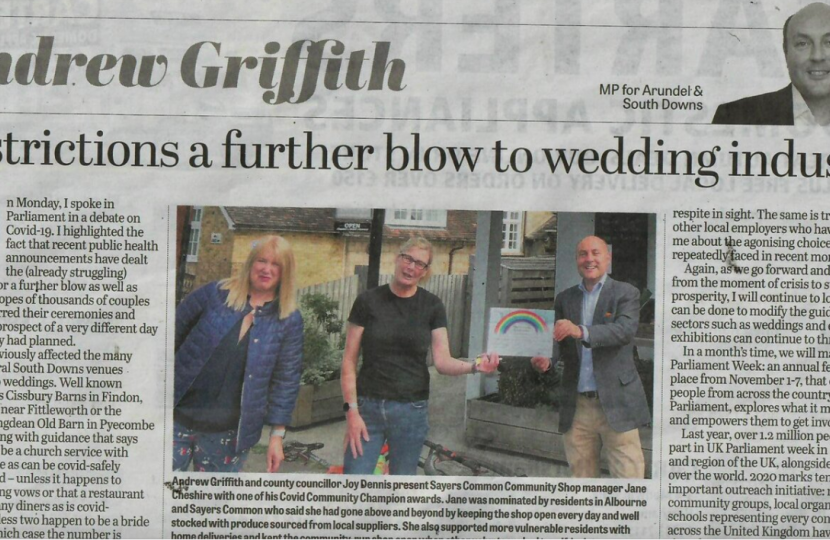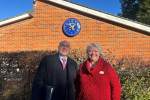
On Monday, I spoke in Parliament in a debate on Covid-19. I highlighted the fact that recent public health announcements have dealt the (already struggling) wedding sector a further blow as well as dashing the hopes of thousands of couples who had deferred their ceremonies and who face the prospect of a very different day to the one they had planned.
This has obviously affected the many wonderful rural South Downs venues which cater to weddings. Well known venues such as Cissbury Barns in Findon, Fitzleroi Barn near Fittleworth or the wonderful Pangdean Old Barn in Pyecombe are all struggling with guidance that says that there can be a church service with as many people as can be covid-safely accommodated - unless it happens to include wedding vows or that a restaurant can host as many diners as is covid-compliant, unless two happen to be a bride or groom in which case the number is restricted to 15.
On behalf of the broader wedding industry - which is particularly well-represented in West Sussex - and for the wider rural economy, I hope that in time the current guidance can be revisited so that over the coming months we can keep our wedding venues and the wedding supply chain ticking over so that they make it through until the spring. Many of the same restrictions are hurting the events and exhibitions business. I have met local business owners before and after the lockdown, who have had to make all of their staff redundant and have been forced to mothball their company, with no potential respite in sight. The same is true several other local employers who have written to me about the agonising choices they have repeatedly faced in recent months.
Again, as we go forward and shift away from the moment of crisis to sustaining our prosperity, I will continue to look at what can be done to modify the guidance so that sectors such as weddings and events and exhibitions can continue to thrive.
In a month’s time, we will mark UK Parliament Week: an annual festival taking place from 1-7 November, that engages people from across the country with their Parliament, explores what it means to them and empowers them to get involved.
Last year, over 1.2 million people took part in UK Parliament week in every nation and region of the UK, alongside countries all over the world. 2020 marks ten years of this important outreach initiative: nearly 6,000 community groups, local organisations and schools representing every constituency across the United Kingdom have already signed up to be part of the conversation, and I’m excited to see so many organisations and local groups taking part and participating in our democracy.
Those interested in getting involved can find out more at www.ukparliamentweek.org
